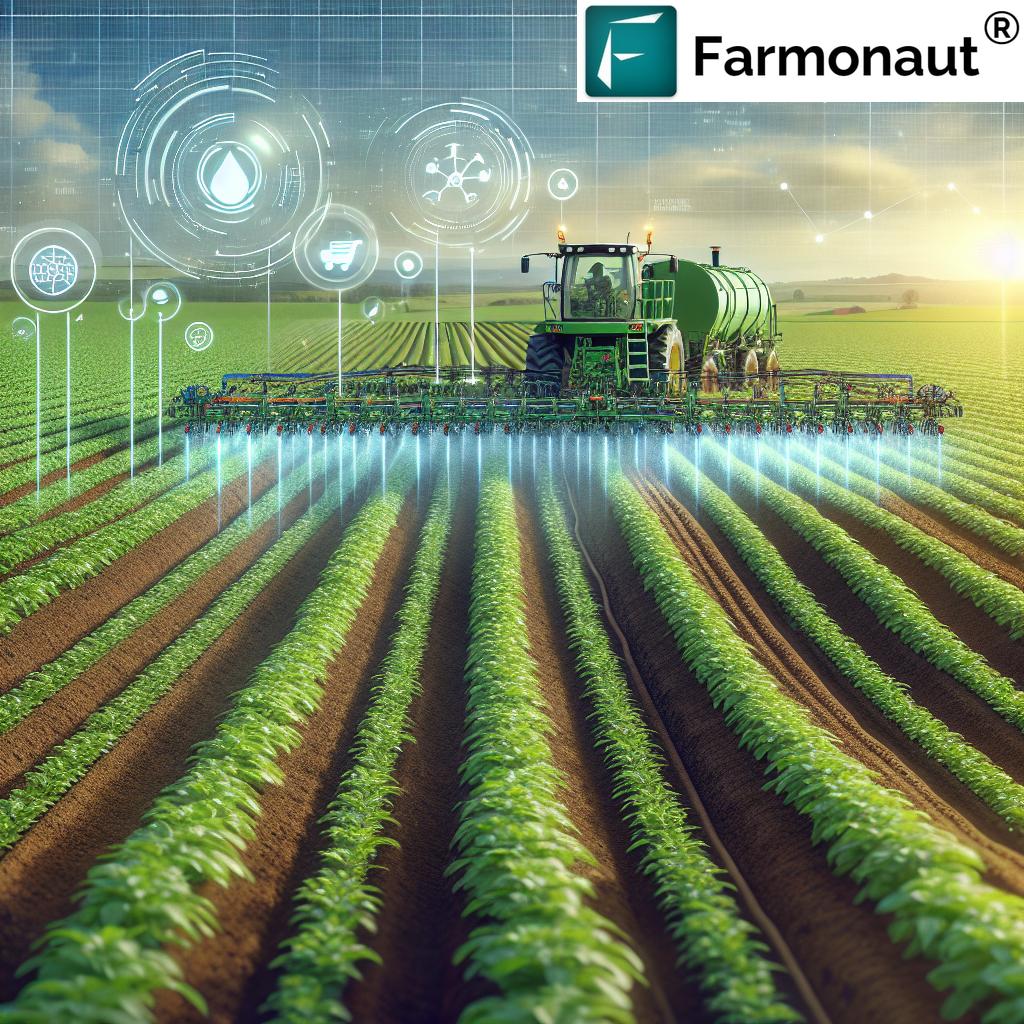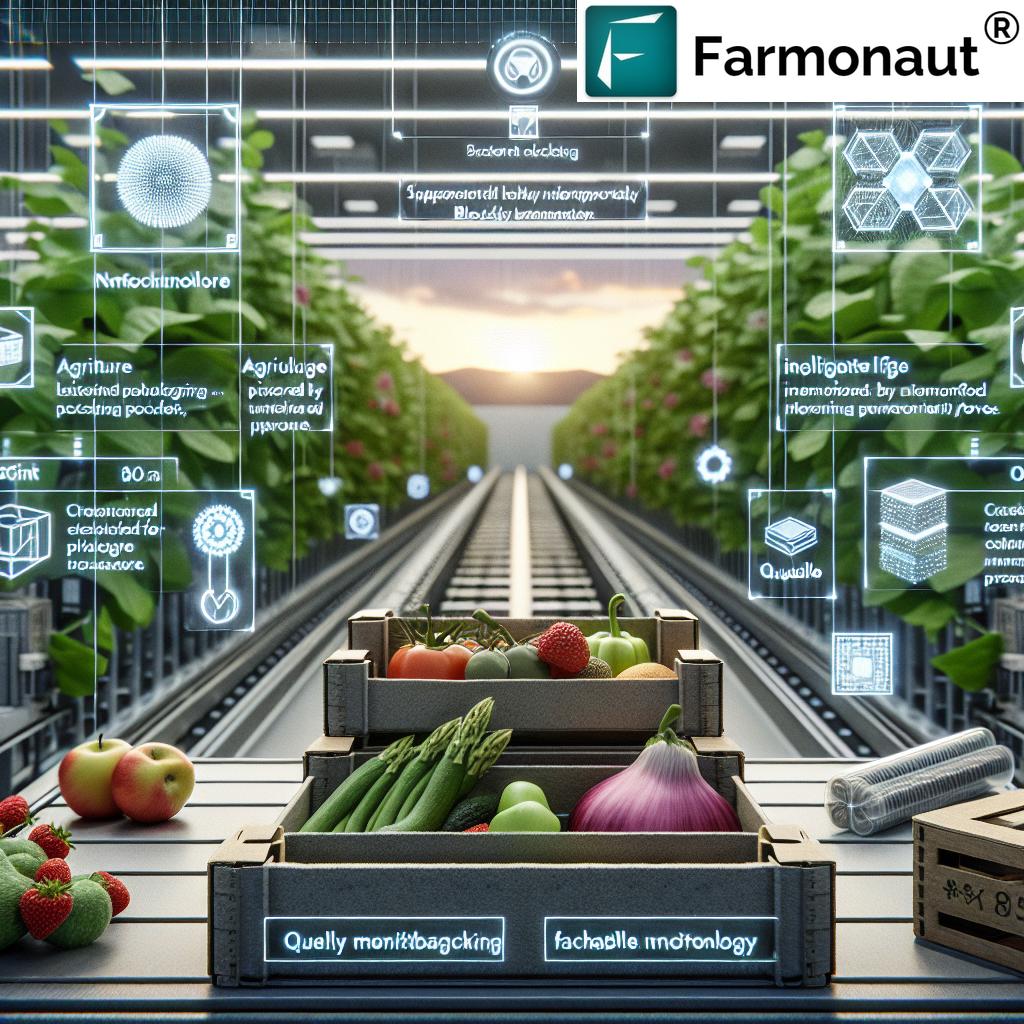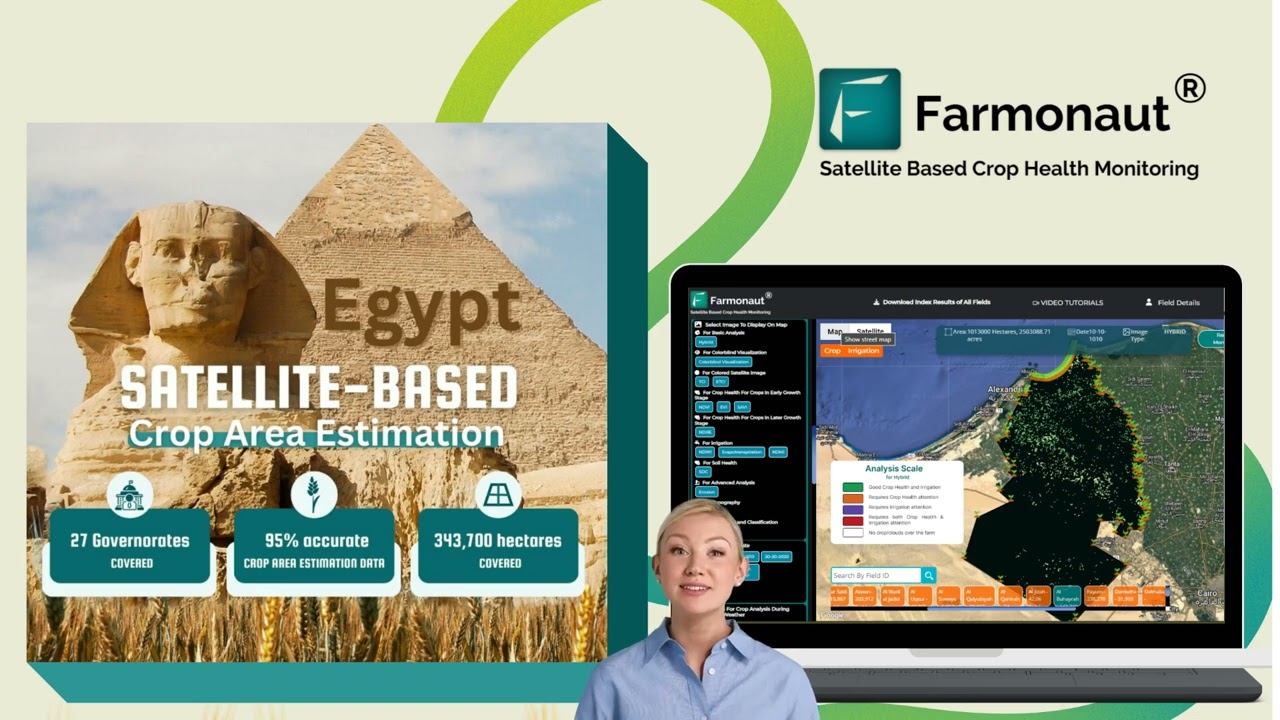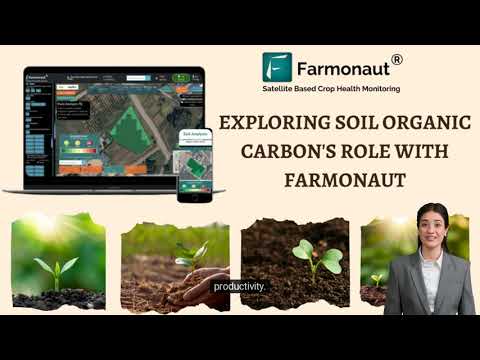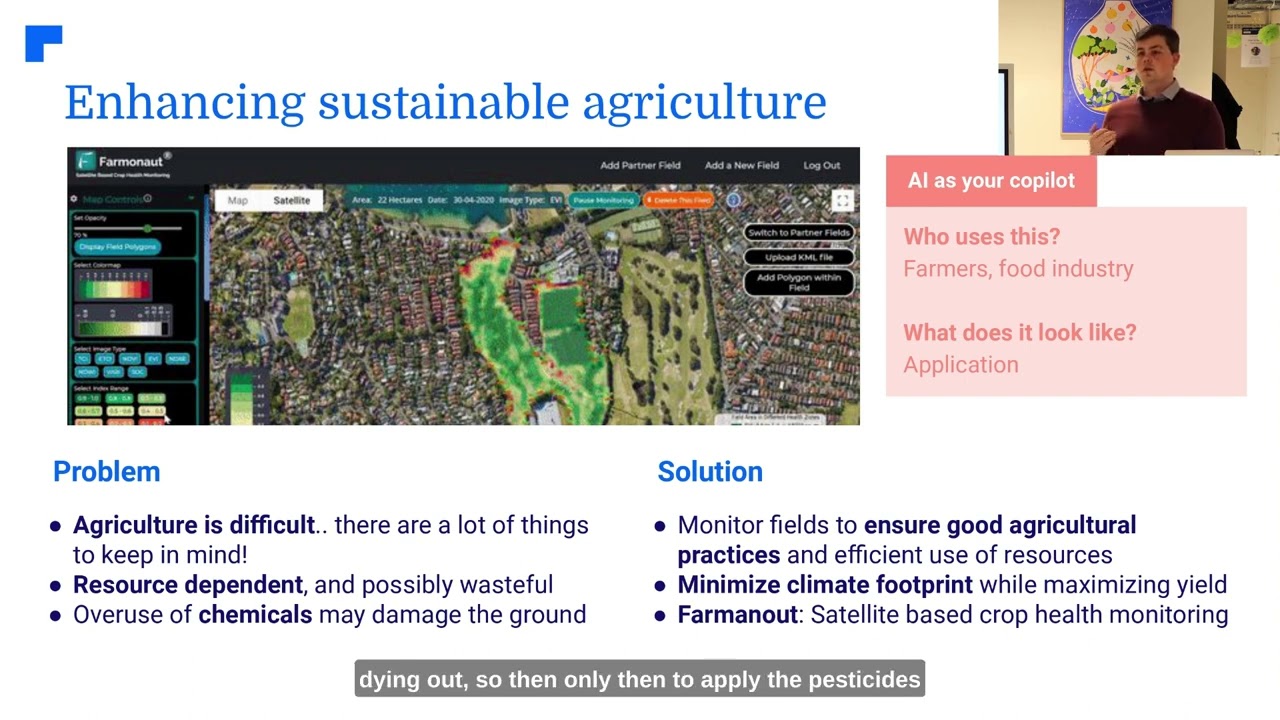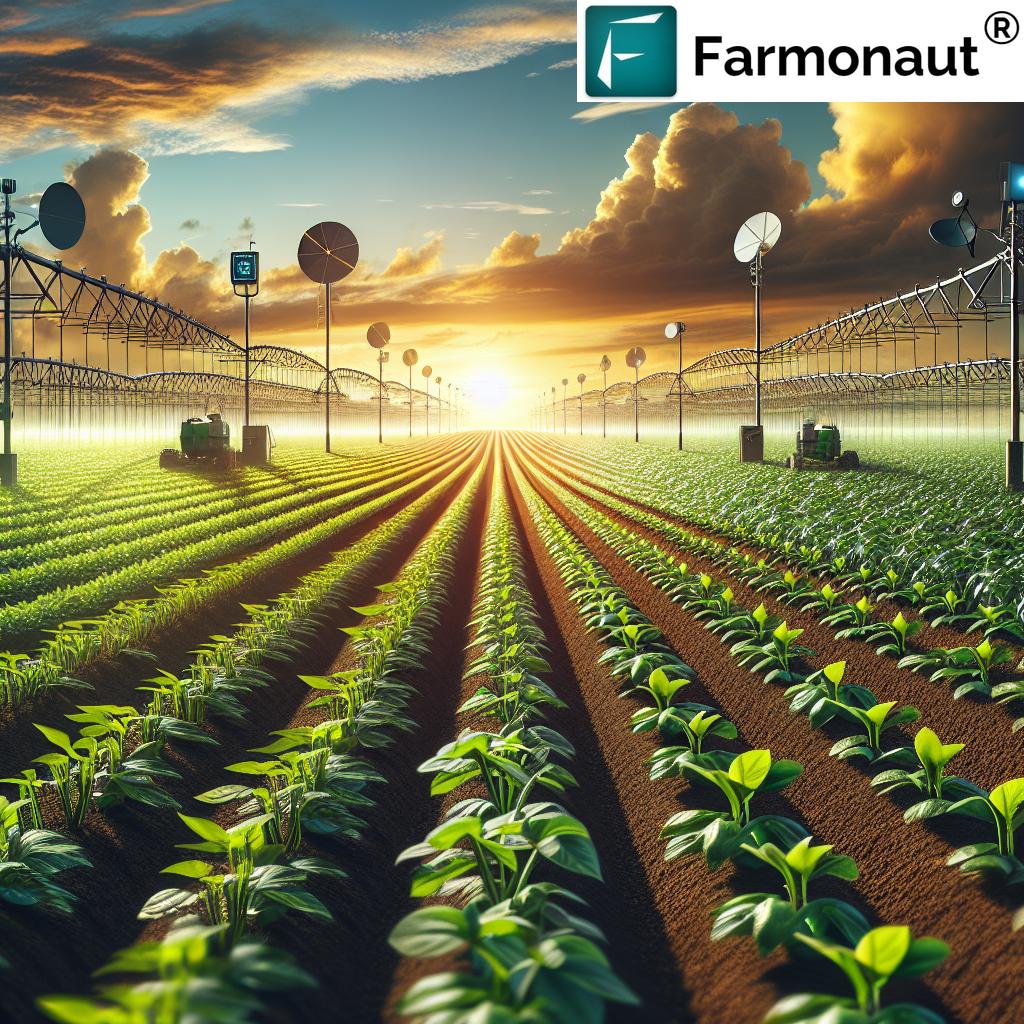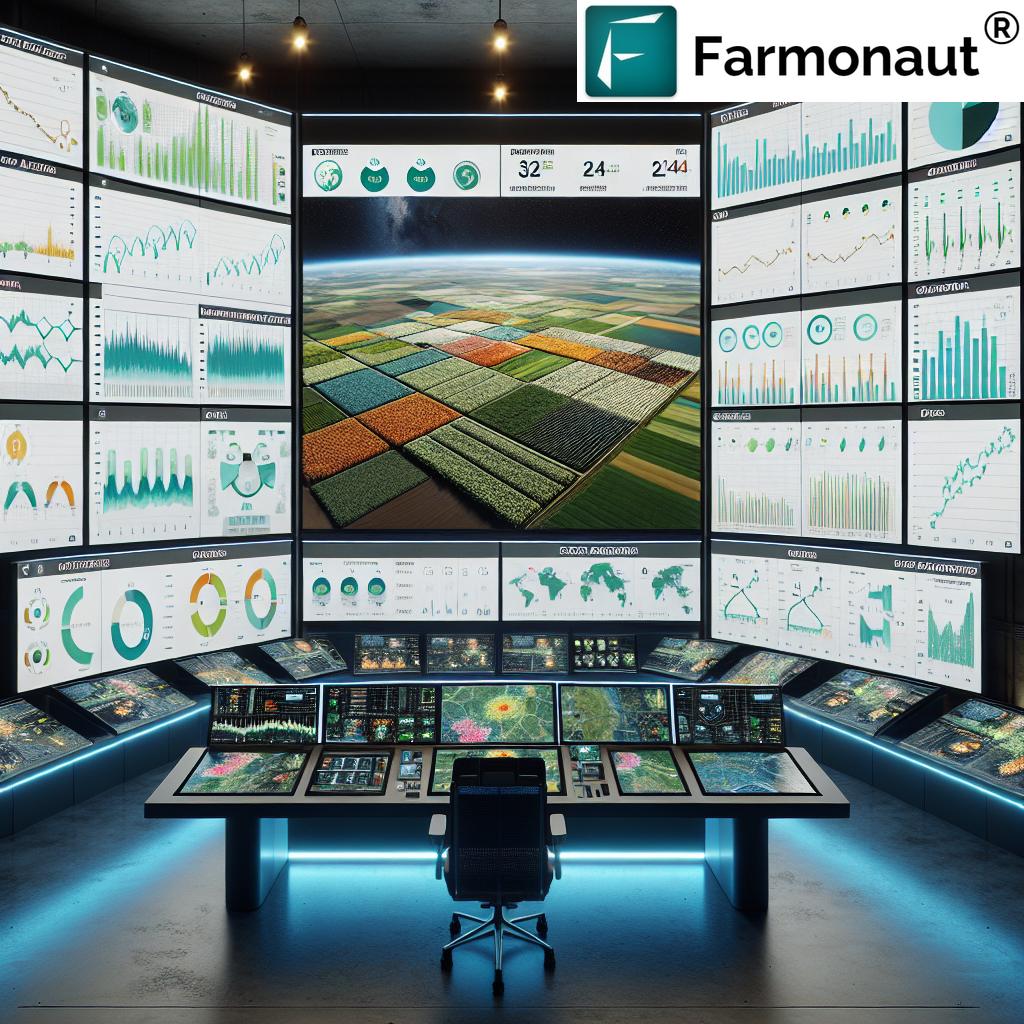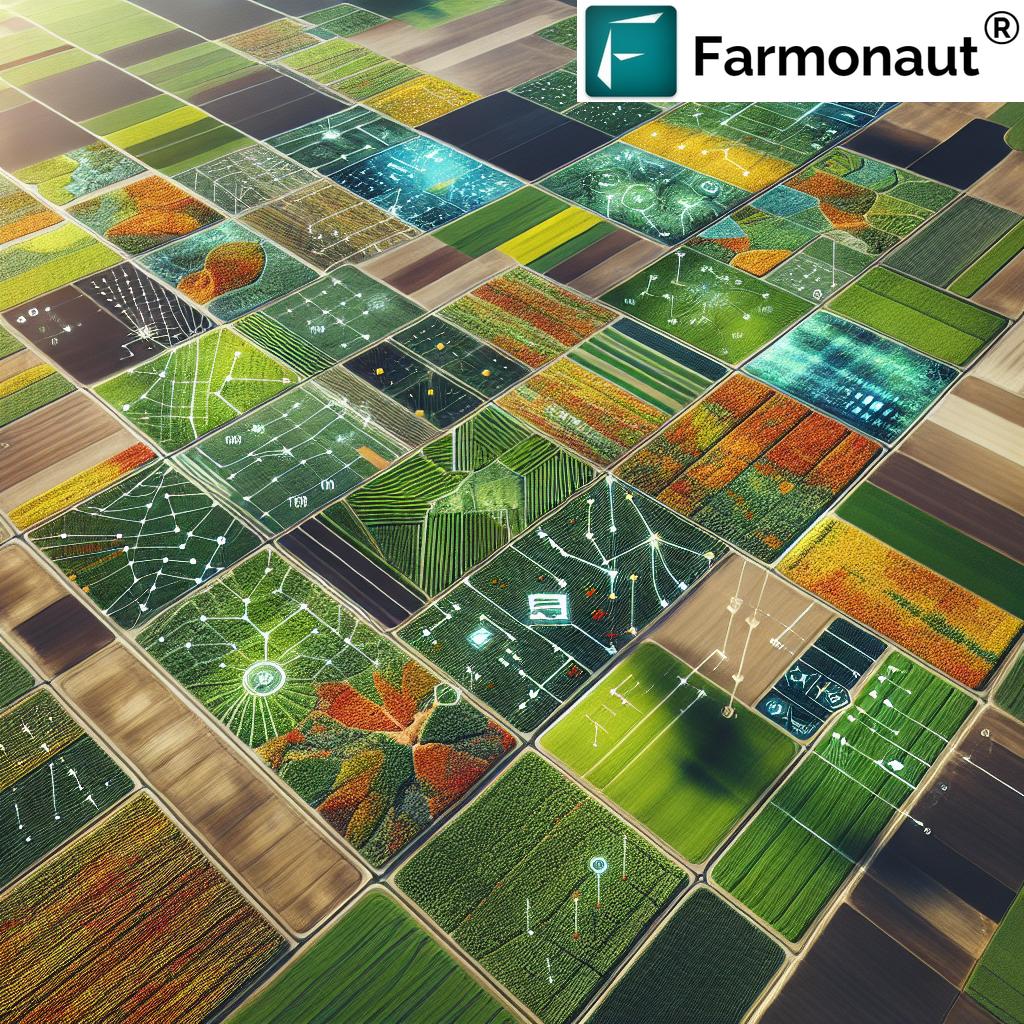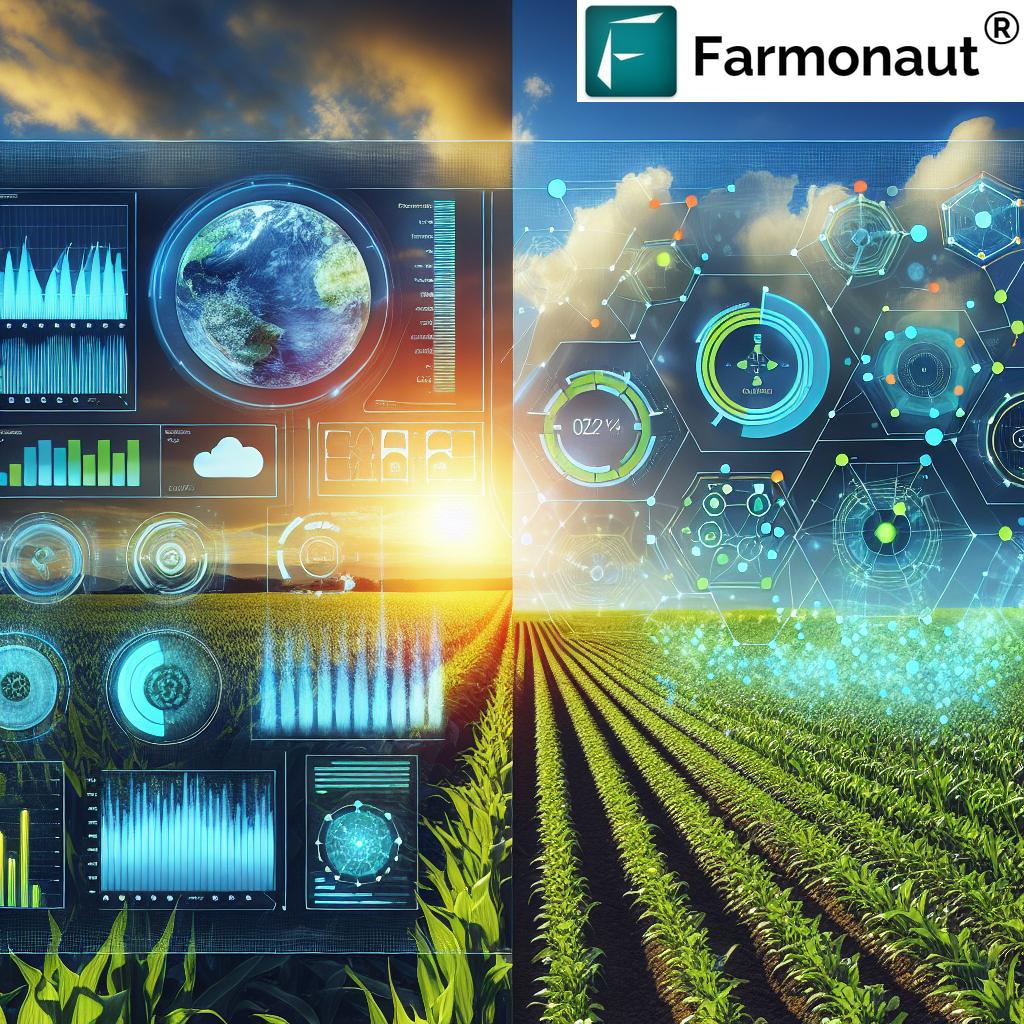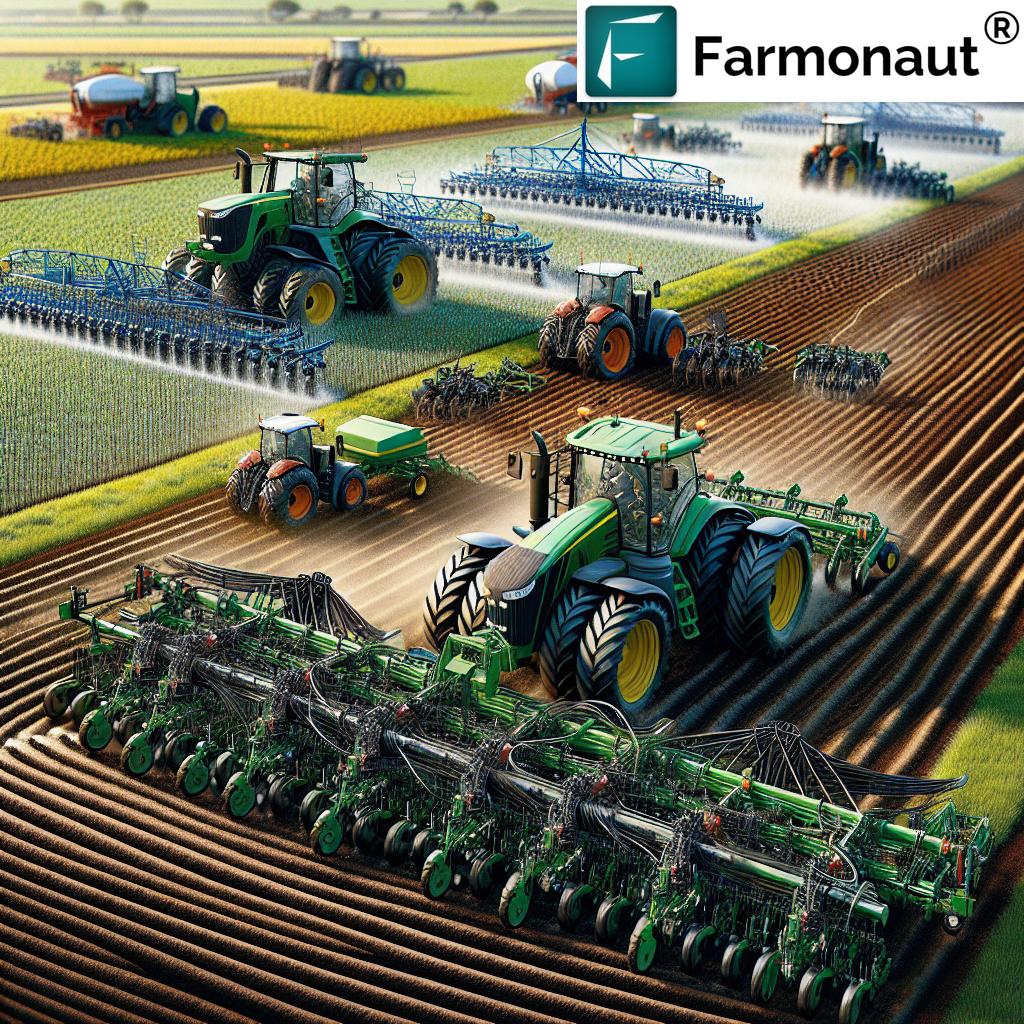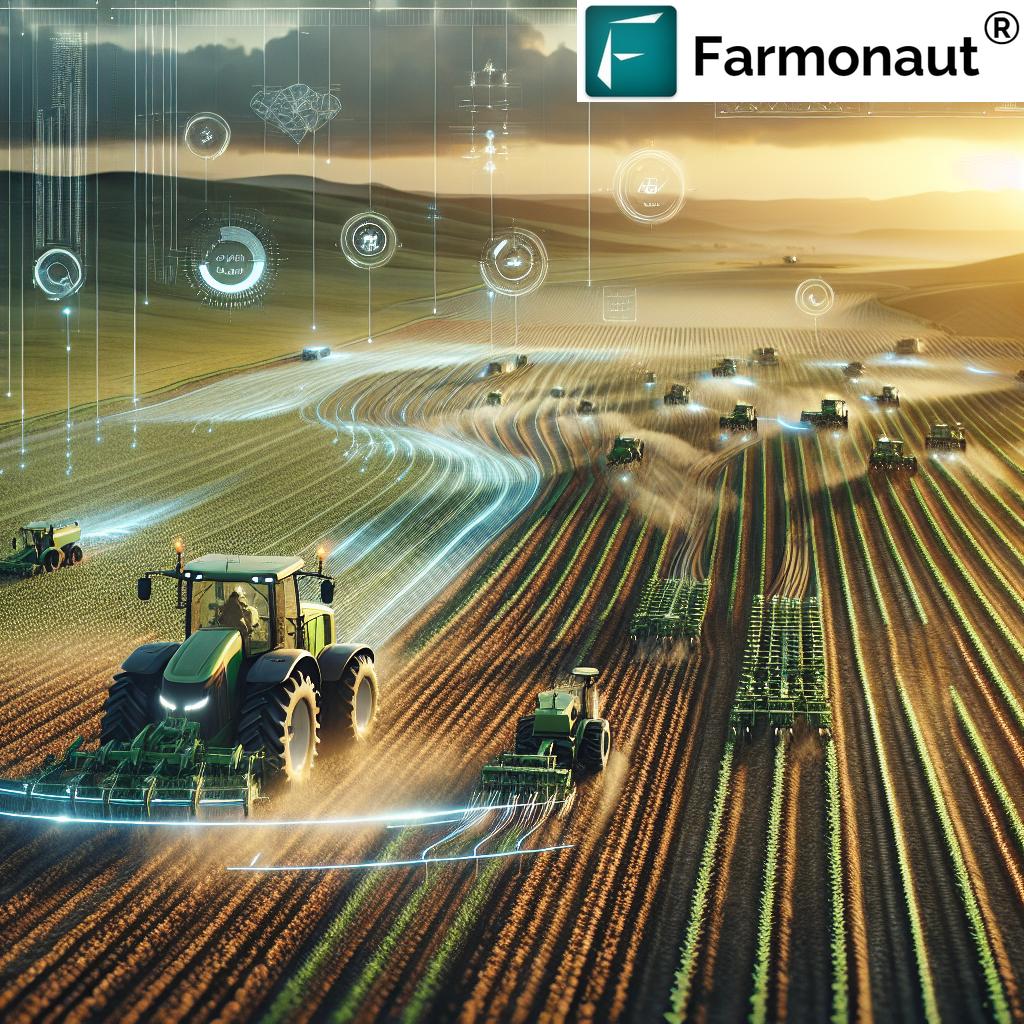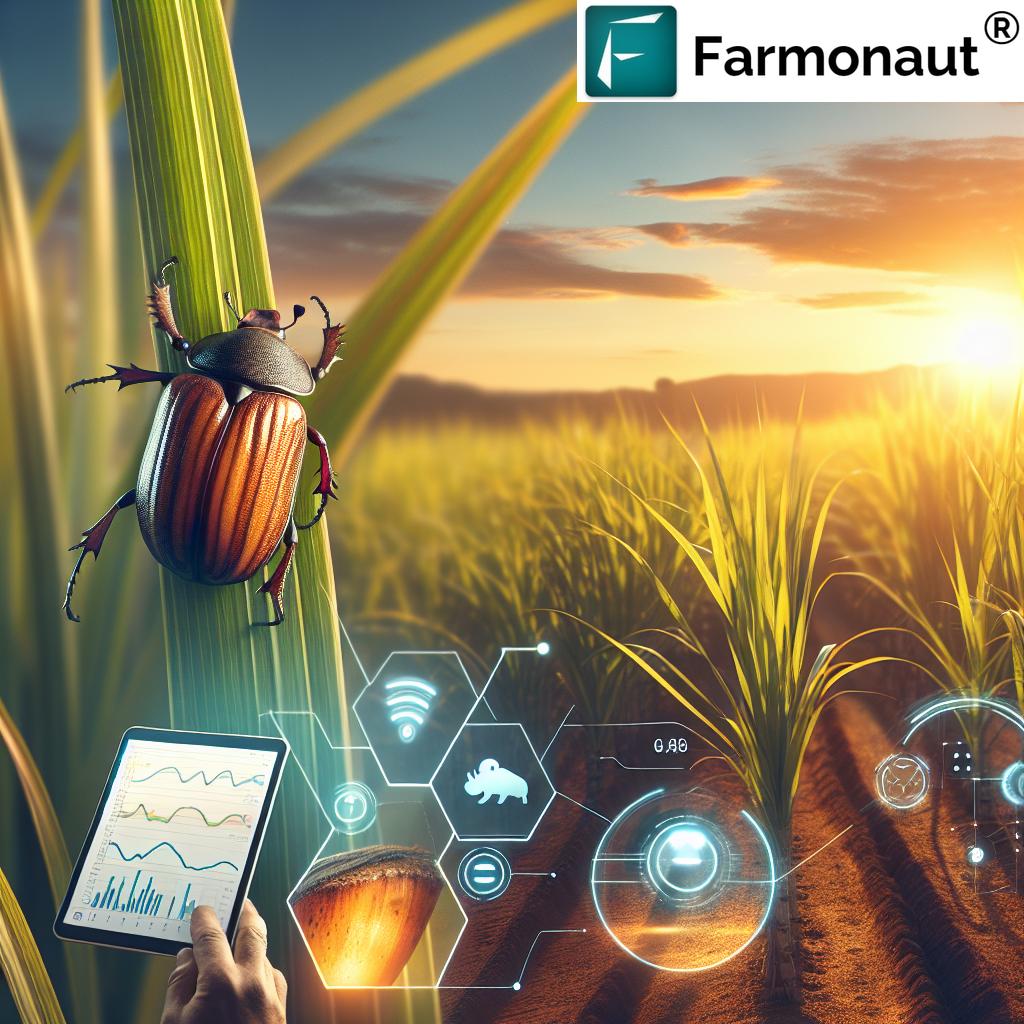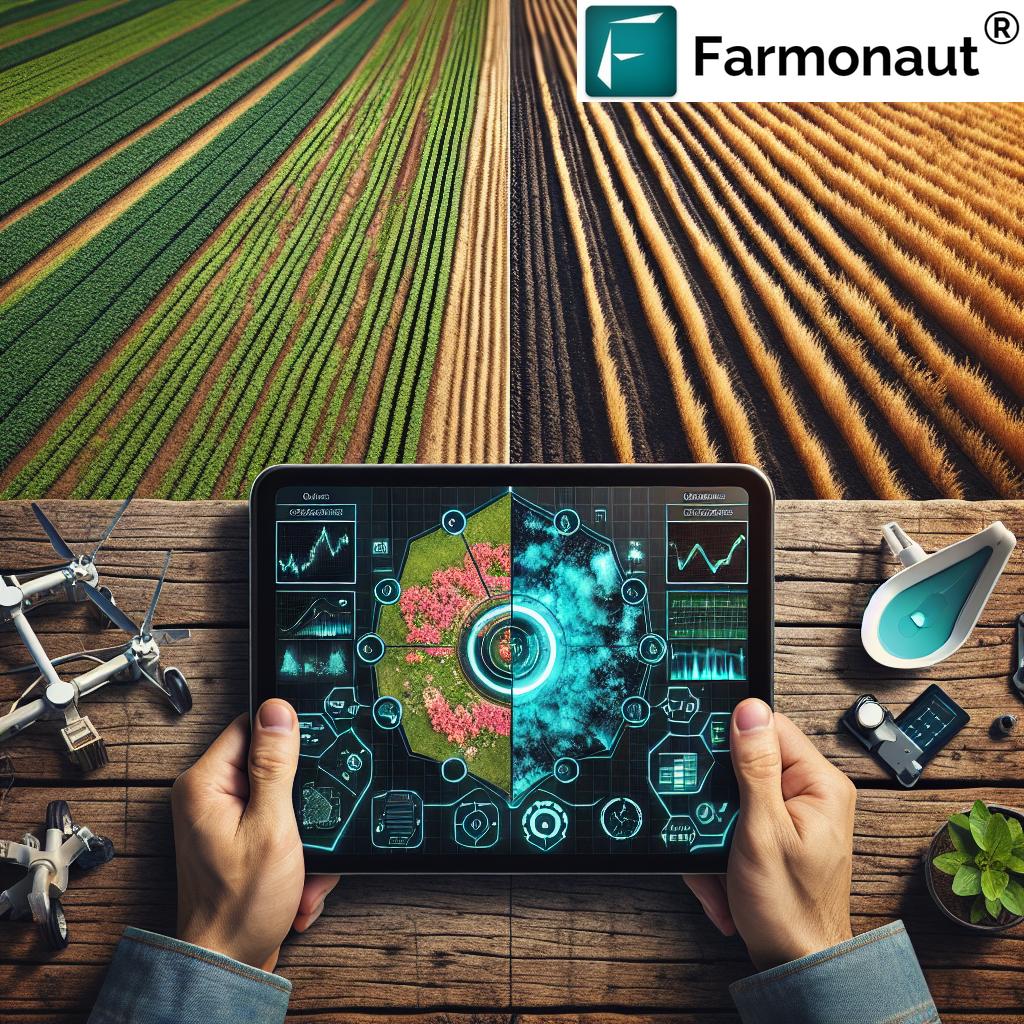Technological Breakthroughs: Manage Food Waste for Future
“Precision agriculture can reduce food waste by up to 35% through targeted planting and harvesting techniques.”
Table of Contents
- Introduction: The Global Issue of Food Waste
- Precision Agriculture & IoT Integration
- Digeponics: Integrating Waste into Cultivation
- Nanotechnology in Agriculture
- Robotics & Automation in Farming
- Blockchain in Food Supply Chain
- Advanced Materials and Bioproducts
- Smart Packaging & Sensors
- Advanced Pest Management
- Soil Health Monitoring Technologies
- Agroforestry & Permaculture Practices
- Farmonaut: Empowering Precision Agriculture
- Comparative Table: Impact of Food Waste Technologies
- FAQ: Technology & Food Waste Management
- Conclusion: Towards a Greener Future
Introduction: The Global Issue of Food Waste
As a global community, we are confronted with a staggering issue: one-third of all food produced for human consumption is lost or wasted every year. This accounts for more than 1.3 billion tons of food, wasting precious resources such as water, soil nutrients, energy, and labor. Not only does this exacerbate environmental degradation through unnecessary carbon emissions and land use, but it also undermines efforts to feed a growing world population.
Reducing food waste in agriculture, farming, and forestry is pivotal—not only does it optimize valuable inputs and reduces costs for farmers, but it is also a critical component in the pursuit of sustainability and environmental health. In this detailed exploration, we’ll dive into the technological breakthroughs that are revolutionizing food waste management for a greener future. Each section emphasizes how advanced technologies—from precision agriculture and blockchain to smart packaging solutions and IoT integration—are playing a decisive role in managing, reducing, and reusing waste in our agricultural systems.
Let’s embark on this journey—learning how technological innovations in precision agriculture, sustainable farming technologies, and smart data-driven practices are empowering us to tackle food waste and foster a sustainable, food-secure world for the next generation.
Harnessing Precision Agriculture & IoT Integration to Reduce Food Waste
At the heart of reducing food waste in agriculture is precision agriculture, empowered by the integration of the Internet of Things (IoT). This fusion brings a new era where every drop of water, gram of fertilizer, and unit of energy is optimized for efficiency.
What Is Precision Agriculture?
Precision agriculture is a methodology that leverages advanced technologies—from sensors and drones to satellite imagery—to monitor and manage various aspects of agricultural operations. By embracing this approach, we move from blanket, one-size-fits-all techniques to targeted, data-informed interventions.
- Data-driven decisions: IoT sensors embedded in soil and fields collect real-time data on moisture levels, nutrients, and crop health.
- Resource optimization: This information enables us to apply water, fertilizers, and pesticides precisely where and when needed, reducing excess use and minimizing runoff that leads to environmental pollution.
- Operational efficiency: IoT devices help us monitor livestock movements, detect equipment malfunctions, and streamline operations, further reducing waste and lowering costs.
Benefits of IoT-Driven Precision Agriculture
- Decreased resource wastage—cutting down on unnecessary inputs saves money and environmental resources
- Reduction in spoilage—real-time monitoring allows faster responses to crop threats or adverse weather, minimizing spoilage losses
- Enhanced soil health—by applying correct nutrients at the right time, we improve soil resilience
Learn how Farmonaut delivers affordable, satellite-based precision agriculture and farm management solutions globally—enabling real-time soil moisture monitoring, crop health analytics, and actionable insights for sustainable farming.
Our ability to harness powerful data from sensors, satellites, and cloud platforms accelerates the transition from traditional to smart, sustainable agricultural practices. Embracing IoT is not just about adding devices—it’s about creating an ecosystem where each resource is honored and waste is prevented at every stage.
Digeponics: Integrating Waste into Efficient Crop Cultivation
Digeponics represents a cutting-edge approach to smart, sustainable waste management in greenhouse agriculture. Developed in Norway, this system ingeniously integrates food waste into cultivation cycles, harnessing its potential rather than letting it degrade unused in landfills.
How Digeponics Works
- Food waste undergoes anaerobic digestion to produce biogas (for electricity) and digestate (for nutrient-rich fertilizer).
- Biogas generated powers greenhouse operations, reducing energy costs and carbon emissions.
- Digestate is used directly in crop cultivation, supplying natural nutrients and enhancing soil health.
- Closed-loop system: Nothing is wasted—everything produced is reused within the farming system.
Impact & Benefits
- Minimized food waste through direct reuse of organic matter
- Reduced fossil fuel dependency in controlled environment agriculture
- Improved yields using high-quality organic fertilizers, reducing need for chemical inputs
We can look to digeponics as a blueprint for regenerative agriculture: integrating byproducts, closing cycles, and reducing environmental impact while sustaining crop productivity.
“Sustainable technologies have improved soil health in over 60% of farms adopting smart food waste management solutions.”
Nanotechnology in Agriculture: Small Solutions with Massive Impact
The application of nanotechnology in agriculture introduces a new realm of advanced, targeted products to help us reduce excesses, minimize waste, and safeguard environmental health.
How Nanotechnology Reduces Food Waste & Promotes Soil Health
- Nanofertilizers deliver nutrients directly to plant roots for increased uptake, reducing fertilizer loss and improving soil health.
- Nanopesticides provide controlled release, minimizing the need for repeated pesticide applications and protecting beneficial species.
- Reduced runoff & chemical contamination: Less product is required thanks to the precision offered by nano-delivery systems, reducing the risk of groundwater pollution.
Balancing Benefits and Environmental Considerations
While nanotech improves farm efficiency, sustainability, and reduces food waste, ongoing research continues to monitor potential health and ecological impacts of nanoparticles. Our careful monitoring and adoption of best practices enable us to leverage these powerful tools responsibly.
Discover more about the monitoring and reduction of chemical fertilizers using Farmonaut’s carbon footprinting and sustainable advisory tools for a data-driven approach to environmental improvement.
Robotics & Automation in Farming: Reducing Waste, Maximizing Quality
Automation in farming is unlocking new horizons for efficiency and waste reduction by enabling highly precise, consistent, and rapid operations.
Role of Robotics & Automation in Reducing Food Waste
- Autonomous tractors, seeders, and harvesters enhance labour efficiency and minimize human error in planting, irrigation, and harvesting tasks.
- Harvest robots are designed to pick fruit and vegetables at their peak ripeness, reducing losses from premature or overripe harvesting.
- Sorting and packaging automation: Advanced machines select and package only high-quality produce, extending shelf life and reducing consumer-level waste.
Key Benefits:
- Consistent food quality with reduced waste at processing and retailer levels
- Optimized labor costs{” “}in both small and large-scale operations
- Increased yields and better land use
Through strategic automation in farming, we’re able to minimize resource waste, improve operational efficiency, and deliver quality agricultural products to the market—fostering both profitability and sustainability.
Blockchain in Food Supply Chain: Enhancing Transparency, Reducing Loss
Lack of supply chain visibility is a major contributor to food waste, especially as products move from farms to consumers. Blockchain technology offers a breakthrough by providing secure, transparent, and immutable records throughout the food journey.
How Blockchain Reduces Food Waste in Agriculture
- Immutable tracking: Each stage of production, processing, and distribution is logged, improving accountability.
- Quick identification of waste points: Spoilage sources or delays in the supply chain are detected, allowing faster resolution.
- Facilitates circular economy: Non-edible food waste is repurposed into animal feed, biofuels, and valuable byproducts through decentralized record-keeping.
Farmonaut’s Blockchain-Based Traceability Solution
Farmonaut’s blockchain-based traceability platform provides end-to-end transparency for agricultural products—empowering farmers, businesses, and consumers with verified data on product origin, journey, and sustainability metrics.
This system not only builds trust but supports supply chain optimization, reduces fraud, and accelerates the reduction of food waste in agriculture.
Advanced Materials & Bioproducts: Upcycling Food Waste for Sustainability
Advanced material science is transforming our approach to food waste by using agricultural byproducts as inputs for sustainable materials and packaging. This fosters a circular economy, where “waste” finds valuable new life.
- Bioplastics from potato peels and other crop residues, replacing petroleum-based packaging and reducing landfill loads
- Pineapple leaf fibers and banana stems processed into textiles, opening new income streams for farmers
- Biochemically-engineered packaging films with antimicrobial properties extend food shelf life, curbing spoilage across supply chains
Encouraging the expansion of these innovations builds farmers’ resilience, reduces environmental impact, and amplifies the value of agricultural waste as raw material for other industries.
Smart Packaging Solutions: Extending Shelf Life, Minimizing Spoilage
Reducing food waste in agriculture and consumer chains also requires extending the usable shelf life of products. Smart packaging technologies—from antimicrobial films to embedded sensors—are game-changers here.
- Packaging with nanomaterial coatings offers antioxidant or antimicrobial action, slowing perishability
- Spoilage detection sensors embedded in packaging give real-time information about freshness
- Time-temperature indicators help track improper storage, allowing earlier intervention and reducing food quality losses
This empowers both producers and consumers—enabling informed decisions and sharply decreasing food waste at every stage.
For businesses seeking actionable insights and real-time monitoring of product movement and quality across supply chains, Farmonaut’s traceability tools offer a powerful means to guarantee authenticity, optimize logistics, and minimize loss. Learn more about traceability for your agricultural products.
Advanced Pest Management: Targeted Protection, Reduced Crop Loss
Upgrading from traditional reactive pest control to advanced pest management solutions supports both waste reduction and environmental health.
- Integrated Pest Management (IPM): Utilizing high-resolution drone imagery and remote sensing data (like those available through Farmonaut’s platform) to pinpoint infestations and enable timely, targeted interventions.
- Biological control: Deploying beneficial insects and biopesticides minimizes chemical input needs, decreasing residue and runoff.
- Precision pesticide delivery using robotics and automated sprayers reduces the area and frequency of chemical applications.
The synergy of technology and ecology in advanced pest management reduces resource loss, protects biodiversity, and enhances food safety.
Soil Health Monitoring Technologies: The Foundation for Reduced Waste and High Yields
Sustaining and rebuilding soil health is essential for agricultural resilience and sustainable practices.
How Soil Health Monitoring Technologies Work
- Real-time soil sensors and satellite data—as provided by platforms like Farmonaut—aggregate continuous information about moisture, nutrient levels, pH, and organic carbon.
- AI-driven analytics process sensor data to generate actionable recommendations for irrigation, fertilizer scheduling, and soil amendment.
- These systems empower farmers to apply resources only as needed, directly reducing waste and input costs by targeting interventions.
With soil health monitoring, we ensure that land resources are conserved and enhanced, losses from nutrient depletion are minimized, and overall food production efficiency is elevated.
Unlock the secrets of sustainable farming with advanced soil analytics and increase yields while reducing waste using Farmonaut’s Crop Plantation & Forest Advisory solutions.
Agroforestry & Permaculture Practices: Diversifying for Sustainability
Agroforestry and permaculture practices integrate a variety of plant species—such as trees, shrubs, crops, and groundcover—into a synergistic farming landscape. This approach is proven to reduce reliance on chemical fertilizers and pesticides, improve soil health, and support biodiversity.
- Multi-layered systems: Trees and perennial species improve soil carbon content, regulate water cycles, and shield crops from wind and sun stress.
- Enhanced resource use: Deeper-rooted species access nutrients from subsoil, improving fertility for understory crops and reducing the need for external inputs.
- Diversification spreads risk: Mixed cropping systems offer resilience to extreme weather, pests, and market fluctuations—all contributing to food waste reduction.
Through precision agroforestry and permaculture practices, farmers foster sustainability, waste minimization, and environmental stewardship—building a foundation for productive, healthy landscapes.
Farmonaut: Empowering Precision Agriculture Worldwide
At Farmonaut, our mission is to make precision agriculture accessible and affordable to farmers everywhere. We believe that technology should empower every grower, regardless of scale or location, to manage food waste, enhance soil health, and optimize farm practices for a sustainable future.
Our Key Technologies
- Satellite-based crop health monitoring—delivering up-to-date, field-level insights on vegetation health (NDVI), soil moisture, and more via web, Android, and iOS Apps. Perfect for individual farmers and large agribusinesses seeking real-time data without expensive hardware.
- Jeevn AI Farm Advisory—personalized AI-driven advice on irrigation scheduling, fertilization, pest risk, and weather forecasts, integrating all data sources to recommend targeted, waste-reducing actions.
- Blockchain-based product traceability—securing trust and transparency in supply chains, increasing efficiency, and accelerating food waste reduction, especially for food industries, cooperatives, and corporate clients.
- Fleet & resource management tools—AI-driven systems to optimize vehicle and machine utilization, control operational costs, and streamline logistics for agribusinesses.
- Environmental impact tracking—real-time carbon footprint measurement and analytics, enabling farms to adopt sustainable best practices.
Who We Serve
- Individual farmers—from smallholders to medium-sized family operations seeking lower input costs, higher yields, and access to sustainable farming technologies
- Agribusinesses & cooperatives—aggregate management for large fields, traceability, compliance, and optimization
- Corporate food and textile clients—ensuring authenticity and transparency in agricultural product supply chains
- Governments, NGOs, and financial institutions—enabling data-driven policies, loan approval, and fraud prevention
Explore mobile and web solutions today with easy onboarding:
Flexible Subscriptions & Streamlined APIs
Our solutions are delivered through a subscription-based model, making it easy for every size of farm or institution to join the agricultural technology revolution at affordable rates. Developers, businesses, and research institutes can access satellite and weather data via Farmonaut API.
Explore the API or read our Developer Documentation to integrate data directly into your agri workflows.
Technology Impact Table: Precision Agriculture, Smart Solutions & Waste Reduction
Below is a comparative features-impact table showcasing various precision agriculture and sustainable technologies—demonstrating their estimated impact on food waste reduction, soil health, and overall farm optimization. This provides clear, data-backed insights for choosing the most effective innovations.
| Technology/Innovation | Application in Agriculture | Estimated Food Waste Reduction (%) | Estimated Improvement in Soil Health (%) | Additional Farm Benefits |
|---|---|---|---|---|
| IoT Sensors | Monitoring soil moisture, nutrients, and crop health, enabling targeted inputs | 30–35% | 20–25% | Lower costs, fewer chemical applications, higher yields |
| Satellite Imagery | Large-scale crop monitoring, stress detection, and resource management | 20–28% | 18–22% | Early warning for disease/pest outbreaks, remote insights |
| AI-driven Forecasting | Predicting irrigation, fertilizer, and harvest needs based on big data | 15–20% | 15–18% | Optimized planning, reduced risks, improved decision-making |
| Smart Storage Solutions | Controlled environment storage & monitoring for perishables | 18–22% | 10–14% | Reduced spoilage, longer shelf life, streamlined logistics |
| Composting Systems | Transforming organic waste into soil amendments/fertilizer | 10–15% | 22–27% | Decreased landfill, improved soil structure, circular economy |
| Automation in Farming | Robotic planting, weeding, harvesting, and sorting | 22–30% | 12–15% | Labor savings, consistent product quality, scalable for all farm sizes |
| Blockchain Traceability | Transparent tracking of food from farm to consumer | 12–18% | 8–12% | Fraud prevention, improved food safety and traceability |
| Advanced Pest Management | Targeted pesticide/biocontrol via data and imaging | 15–25% | 10–14% | Less chemical use, protects biodiversity |
| Smart Packaging Solutions | Packaging that extends shelf life and tracks freshness | 12–20% | 5–8% | Reduces spoilage at consumer and retail stages |
Frequently Asked Questions: Precision Technology & Food Waste Management
How does precision agriculture help in reducing food waste?
Precision agriculture combines sensors, satellite imagery, IoT devices, and AI-driven analytics to monitor and manage field variables in real time. By delivering resources—like water and fertilizers—only where and when they are needed, we avoid overapplication and resource wastage, enhance crop health, and significantly reduce food loss at every stage of production.
What is the benefit of blockchain in the food supply chain?
Blockchain provides transparency and traceability by securely recording each step of a food product’s journey from farm to consumer. This helps identify inefficiencies, detect points of loss or spoilage, prevent fraud, and supports rapid recalls if necessary. Ultimately, blockchain is a vital tool for accountability and waste reduction in modern food systems.
Why is soil health monitoring important for sustainable agriculture?
Healthy soil ensures consistent, high yields while reducing dependency on chemical inputs. Technologies like sensor-based monitoring and satellite-driven analytics help us track moisture, nutrients, pH, and organic content, enabling timely and targeted interventions that protect environmental quality and foster long-term farm productivity.
Are smart packaging solutions suitable for all types of food?
Yes, smart packaging technologies—such as antimicrobial films and spoilage sensors—are increasingly adaptable for a wide range of perishable products, from fruits and vegetables to meats and dairy. The result is extended shelf life, reduced spoilage, and more informed consumer choices.
What role does Farmonaut play in advancing sustainable farm practices?
Farmonaut offers cost-effective, cutting-edge technology solutions—satellite analytics, AI-driven advisory, blockchain-based traceability, and resource management tools—that empower farmers, agribusinesses, and organizations globally to implement precision agriculture, reduce waste, optimize resource use, and advance environmental sustainability.
Conclusion: Technological Breakthroughs Fostering a Greener, Waste-Free Future
Globally, the journey to manage food waste for the future is gathering unstoppable momentum, thanks to the adoption of precision agriculture, sustainable technologies, and smart solutions. Through ongoing innovation and widespread implementation—from real-time soil health monitoring and smart packaging solutions to blockchain in food supply chains and automation in farming—
we are:
- Reducing agricultural waste and input costs at every step
- Enhancing soil health and environmental sustainability
- Optimizing operational efficiency and supply chain transparency
- Fostering a circular economy for true resource reuse
As we continue to unlock the power of advanced technologies—driven by leaders like Farmonaut and supported by worldwide adoption—we will collectively ensure food security, protect our planet’s resources, and deliver on the promise of a sustainable, food waste-free future.
Join us in advancing sustainable agriculture solutions—discover, optimize, and transform farm management today:


